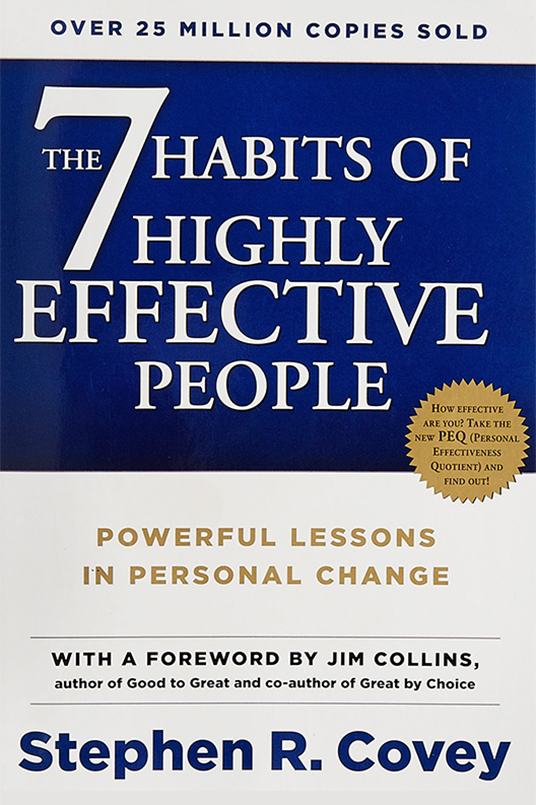This is the BEST book I read during June 2020.
Any book that keeps being promoted through word of mouth, decades after it was published, is one that is likely filled with tons of value.
We typically judge these “old books” by their cover and think that they’ll be outdated. Yet, each time I’ve finally decided to get started I get proven wrong.
This book is filled with timeless and evergreen knowledge and insights.
My biggest takeaway is that interdependence is NOT to be confused with dependence. And that although independent is better than dependence, we should always strive for achieving interdependence (and in order to do so we have to let go of our need to control everything).
If you haven’t read this book yet just buy it and read it ASAP.
Flow: 5/5, although it flows well, it might be best if it’s read in a week or two to allow for the lessons to be absorbed.
Actionability: 5/5, there’s a lot of tactical and step-by-step advice in the book.
Mindset: 5/5, even if you think you are an efficient person (as I did) there is still a LOT to learn in this book that will change the way you see life.
Some of My Highlights:
-
“It taught me that we must look at the lens through which we see the world, as well as at the world we see, and that the lens itself shapes how we interpret the world.”
-
“If I try to use human influence strategies and tactics of how to get other people to do what I want, to work better, to be more motivated, to like me and echar other – while my character is fundamentally flawed, marked by duplicity and insincerity – then, in the long run, I cannot be successful.”
-
“To try to change outward attitudes and behaviors does very little good in the long run if we fail to examine the basic paradigms from which those attitudes and behaviors flow.”
-
“Being is seeing in the human dimension. And what we see is highly interrelated to what we are.”
-
“While practices are situationally specific, principles are deep, fundamental truths that have universal application.”
-
“Principles are the territory. Values are maps.”
-
“On a ten-point scale, if I am at level two in any field, and desire to move to level five, I must first take the step toward level three.”
-
“Admission of ignorance is often the first step in our education. Thoreau taught. ‘How can we remember our ignorance, which our growth requires, when we are using our knowledge all the time?'”
-
“Listening involves patience, openness, and the desire to understand – highly developed qualities of character. It’s so much easier to operate from a low emotional level and to give high-level advice.”
-
“Our level of development is fairly obvious with tennis or piano playing, where it is impossible to pretend. But it is not so obvious in the areas of character and emotional development.”
-
“The inside-out approach says that private victories priced public victories, that making and keeping promises to ourselves precedes making and keeping promises to others.”
-
“‘Lift off’ takes a tremendous effort, but once we break out of the gravity pull, our freedom takes on a whole new dimension.”
-
“…a Maturity Continuum from dependence to independence to interdependence.”
-
“Interdependence is the paradigm of we – we can do it; we can cooperate; we can combine our talents and abilities and create something greater together.”
-
“Independent people who do not have the maturity to think and act interdependency may be good individual producers, but they won’t be good leaders or team players.”
-
“Interdependence is a choice only independent people can make.”
-
“Our most important financial asset is our own capacity to earn.”
-
“PC work is treating employees as volunteers just as you treat customers as volunteers, because that’s what they are. They volunteer the best part – their hearts and minds.”
